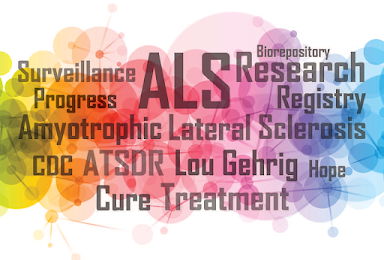The progression of amyotrophic lateral sclerosis
The motor neurons, or neurons that regulate muscular movements, are affected by ALS. Muscles innervated by degenerating neurons become feeble and eventually atrophy as the disease progresses. Muscle weakness in the legs or arms, as well as cramping or twitching in the feet and hands, are common early signs of ALS. Slurred speech is also possible. Speech and swallowing become more difficult as the illness progresses. Severe muscular weakness, frequent falls, breathing difficulties, chronic tiredness, stiffness, and strong twitching are some of the later symptoms. The muscles that are damaged gradually become paralyzed. Atrophy or paralysis of the respiratory muscles is the most common cause of death. The majority of ALS patients live for three to five years following the beginning of the disease.
ALS Causes
The majority of ALS cases are sporadic (not inherited) and unknown in origin. Approximately 5–10% of cases are inherited, with 30% related to mutations in the FUS/TLS, TDP43, and SOD1 genes. Although the mechanisms by which genetic variations cause ALS are unclear, the FUS/TLS protein is known to regulate RNA to protein translation in motor neurons. This function is similar to the TDP43 encoded protein. Mutations in both genes induce protein accumulation in the cytoplasm of neurons, causing neuronal dysfunction. Defects in SOD1, an enzyme that produces superoxide dismutase, appear to facilitate free radical damage to motor neurons (molecular by-products of normal cell metabolism that can accumulate in and destroy cells). Toxic free radicals attack neurons when SOD1 mutations cause ALS.
It was revealed in 2011 that UBQLN2 gene mutations cause ALS-related neuronal degeneration. UBQLN2 codes for ubiquilin 2, a protein involved in the recycling of damaged proteins from spinal cord, cortical, and hippocampus neurons. UBQLN2 mutations induce protein accumulation in neurons like FUS/TLS and TDP43 mutations. Like other ALS molecular diseases, ubiquilin 2 abnormalities have been related to other neurodegenerative illnesses. The presence of ubiquilin 2 abnormalities in all ALS forms suggests a common pathogenic etiology.
Treatment and Diagnosis
ALS has no known cure. ALS treatment with the medication riluzole, on the other hand, can reduce the disease's development. Riluzole is the sole medication therapy available for ALS, and it has been found to extend life by two to three months. Tracheotomy is a surgical procedure in which a hole is made in the trachea to allow connection to a ventilator for patients with severe illness (breathing machine). Patients may also choose for physical therapy, which includes exercises to preserve muscular strength. Speech therapy, as well as the use of special computers and speech synthesizers, can aid in the maintenance or improvement of communication.
Some people with ALS have a mutation in a gene called KIFAP3 that appears to slow down the disease's development. In fact, those with ALS who have this genetic variation may have a 40–50 percent chance of living longer.




Am Sharon George, sincerely i was so sad when my dad was diagnosed with ALS disease early this year march to be precise , and i was so confused because i love my dad and i wouldn't want to loose him so soon so i decided to look for a possible solution to get rid of this ALS disease despite knowing it has no cure as advised by the medical doctor, everyday my dad's heath depreciate and keeps loosing weight and strength, a friend advised me to try Dr James ALS disease herbal formula that she used it to cure her dad's heart disease and i was reluctant about it until after a second thought i decided to give it a try because no harm in trying and immediately i contacted him he assure me that my dad will be cured within few weeks of medication and he sent me the medicine and i applied it on my dad as advised by Dr James and within 6 weeks of using the herbal formula my dad was cured and now my dad is free from ALS, i went to the hospital that said there was no cure to ALS disease and informed them about my dad's healing and they were surprised. here is the contact email ( jamesherbalformula@ gmail. com ) also reach him on hangout or through his whatsapp number via +2348102574680
ReplyDeleteRegards.